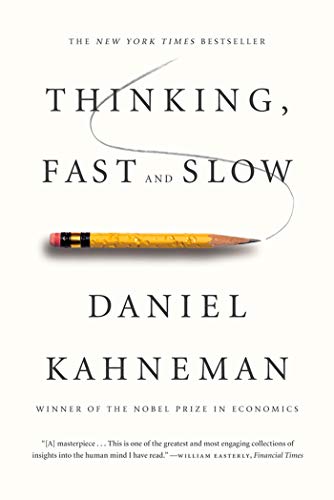The Psychology Behind Financial Decision-Making
As an Amazon Services LLC Associates Program participant, we earn advertising fees by linking to Amazon, at no extra cost to you.
Understanding Behavioral Finance and Its Importance
Behavioral finance digs deep into why we make the financial choices we do. It’s not just numbers and charts; it’s about our minds and emotions. Understanding this can help us unlock our true financial potential.
Cognitive biases like loss aversion and overconfidence skew our judgment. For instance, holding onto a losing stock too long feels safer than admitting a mistake. This often leads to missed opportunities.
Many believe that rational thinking rules financial markets. But I think that emotions play a far bigger role. As Daniel Kahneman said, “Behavioral finance takes into account the emotional component of finance, which is often overlooked in traditional models.” This insight is crucial for anyone trying to navigate the financial landscape.
We often overlook how social influences shape our decisions. Herd behavior can push us to follow trends, even when they don’t align with our financial goals. Understanding these social dynamics can help us resist the urge to conform.
Education is key. Financial literacy empowers us to recognize our biases. With knowledge, we can make more informed choices. It’s about turning insights into actions that lead to better financial outcomes.
Some experts argue that emotional responses can be useful signals in the market. I disagree. While emotions can indicate trends, they can also cloud judgment. Relying solely on emotional data can lead to poor investment decisions.
Looking at the bigger picture, we need to integrate emotional intelligence into financial planning. This means training ourselves to manage our feelings during financial decisions. By doing so, we can approach investing with clarity.
In conclusion, behavioral finance isn’t just an academic concept. It’s a practical tool for anyone looking to improve their financial life. Let’s embrace the psychology behind our decisions and strive for better outcomes.
Practical Strategies for Better Financial Decision-Making
Here are some actionable strategies to improve your financial decision-making by understanding the psychological factors at play.
- Recognize your biases. Many investors fall prey to biases like loss aversion. Understanding this can help you make more rational choices.
- Implement a structured investment plan. Having a clear strategy reduces impulsive decisions driven by emotions.
- Use visualization techniques. Seeing potential outcomes can clarify your choices and reduce anxiety during market fluctuations.
- Develop emotional intelligence. It’s not just about numbers; managing emotions is key to successful investing.
- Educate yourself continuously. Financial literacy empowers you to recognize biases and make informed decisions.
- Seek diverse perspectives. Engaging with different viewpoints can challenge your assumptions and broaden your understanding.
- Join a financial literacy community. Sharing experiences with others can provide support and enhance your knowledge.
- Practice mindfulness. Techniques like meditation can help you stay calm and focused, especially in volatile markets.
- Set predetermined rules for trading. This keeps emotions in check and helps you stick to your plan.
- Reflect on past decisions. Analyzing previous choices can reveal patterns in your behavior and highlight areas for improvement.
Cognitive Biases and Their Impact on Investment Choices
Cognitive biases can mess with our investment choices. I’ve seen it happen too often. Investors cling to confirmation bias, ignoring anything that contradicts their beliefs. It’s like wearing blinders. They might hold onto a sinking stock, convinced it will bounce back, while the evidence screams otherwise.
Another sneaky bias is anchoring. This is where we latch onto the first piece of information we see, often distorting our judgment. For example, if an investor hears a stock is worth $100, they might resist selling it for $80, even if market conditions suggest it should be lower. This can lead to missed opportunities.
Many experts talk about addressing these biases through education. But I think it’s deeper than that. We need to recognize our emotional reactions. Understanding that fear and greed can drive our decisions is key. It’s not just about knowledge; it’s about emotional intelligence.
Some believe we should combat these biases with structured advice. I think we should take it a step further. Instead of just avoiding biases, why not use them to our advantage? By understanding how emotions influence market trends, we can make more strategic choices.
New discussions should focus on how financial decisions evolve with life stages. Young investors might react differently than retirees. Tailoring advice to these stages can create better outcomes. It’s about understanding the psychology behind our choices.
For more insights, check out the work of Daniel Kahneman. He said, “Our findings suggest that the use of mental shortcuts in financial decision-making often leads to systematic errors.” You can read more about it on JSTOR.
And let’s not forget Richard Thaler, who highlights that understanding human cognitive biases is crucial for improving investment strategies. He’s a voice worth listening to, as noted on University of Chicago.
Feb 28, 2023 … Understanding the psychology of financial decision–making will help you develop stronger relationships, deepen trust, and facilitate a playing field filled …
The Psychology of Financial Decision-Making: Understanding …
We describe some of this recent research at four levels of financial decision making in which cognitive principles play some role: (i) household finance (see …
The Psychology and Neuroscience of Financial Decision Making …
Explain the psychology behind financial decisions made by business leaders and investors. … Unlock impactful financial decision–making for success in …
… financial decisions. This unique conference brings together top scholars from diverse fields such as economics, psychology, sociology, behavioral finance …
Boulder Summer Conference on Consumer Financial Decision Making
The Impact of Social Influences on Financial Decisions
Social influences can seriously skew our financial decisions. Many people feel pressured to conform to trends, often leading to poor investment choices. It’s that simple—herd behavior can be more damaging than we realize.
Most experts say that societal norms dictate our financial behavior. But I think we can flip that narrative. Instead of blindly following the crowd, we should leverage community support for informed decisions.
Social media amplifies this pressure. Everyone showcases their financial successes, which can lead us to make rash choices. But remember, what works for one person might not work for you.
Financial literacy communities can be a game changer. They provide a platform for sharing knowledge and diverse perspectives. This supportive network can help us make better choices without the weight of negative social pressures.
As Robert Shiller from Yale University points out, “The market is driven not just by fundamentals, but by the collective behavior of investors, influenced by social factors.” This highlights how crucial it is to understand the psychology behind our decisions.
Incorporating insights from behavioral finance can help us resist social pressures. By focusing on our personal financial goals, we can break free from the herd mentality.
Explain the psychology behind financial decisions made by business leaders and investors. … Unlock impactful financial decision–making for success in …
Understanding the psychology behind financial decision–making, · Learning to manage credit and student loan debt, · Creating individual spending plans that work …
Oct 17, 2024 … An Accredited Financial Counselor® from AccessLex Institute® will discuss these factors along with the concepts of money scripts and psychological explanations.
The Psychology of Financial Decision Making – Harvard Law School …
[Key Cognitive Biases Affecting Investors]
Understanding cognitive biases is key to making smarter financial decisions. Here’s a look at some of the most common biases that can skew your judgment.
- Loss Aversion: We fear losses more than we value gains. This often leads to holding onto losing investments too long.
- Overconfidence: Many investors overestimate their knowledge and abilities. This can result in risky decisions and poor outcomes.
- Confirmation Bias: We tend to seek information that confirms our beliefs. This can blind us to contrary evidence and lead to poor investment choices.
- Anchoring: First impressions stick. Investors often fixate on initial price points, affecting their future decisions.
- Herd Behavior: We follow the crowd, especially during market swings. This can lead to buying high and selling low, often against better judgment.
Empowering Financial Decisions Through Education and Awareness
Many believe that financial success is purely about numbers. I think it’s much more because understanding behavioral finance is key. Awareness of cognitive biases can transform your investment strategies.
For instance, loss aversion often traps investors in poor choices. They hold onto losing stocks, fearing the realization of a loss. But what if they recognized this bias? They could make better decisions, like cutting losses early.
Education plays a pivotal role in this. Financial literacy helps individuals identify their biases and navigate their emotions. When people understand their financial behavior, they can make informed choices.
Some experts argue that traditional education isn’t enough. They suggest emotional intelligence training, allowing clients to manage their feelings during market volatility. I agree because it empowers investors to stick to their strategies.
Understanding the psychology behind financial decisions isn’t just for professionals. Everyone can benefit from it. By fostering a culture of awareness, we can improve overall financial outcomes.
As Robert Shiller notes, “The market is driven not just by fundamentals, but by the collective behavior of investors, influenced by social factors.” This highlights the importance of community in financial decision-making. Engaging with others can provide support and insights, helping us resist negative social pressures.
Incorporating financial education into our lives is essential. It’s not just about knowing the numbers; it’s about understanding ourselves and our behaviors. Empowering ourselves with knowledge can unlock our financial potential.
The Need for Financial Literacy in Overcoming Biases
Financial literacy is essential for recognizing and mitigating cognitive biases in investing. It empowers individuals to make informed decisions, leading to better financial outcomes.
- Understanding financial concepts is key. It helps identify biases like loss aversion and overconfidence.
- Informed investors are less likely to panic. They can stick to strategies despite market fluctuations.
- Education fosters critical thinking. This enables investors to analyze information rather than just follow trends.
- Financial literacy reduces reliance on emotions. Knowledge equips individuals to make rational choices instead of impulsive ones.
- Awareness of biases leads to better decisions. Recognizing cognitive distortions can improve investment strategies.
Strategies to Address Emotional Reactions in Investing
Here are some practical strategies to help you manage emotions while investing, ensuring better decision-making.
- Practice mindfulness. It helps you stay grounded during market swings.
- Set clear investment goals. This keeps you focused and less swayed by emotions.
- Create a structured investment plan. Stick to it, even when emotions run high.
- Limit exposure to market news. Constant updates can trigger anxiety and impulsive decisions.
- Use visualization techniques. Imagine your long-term goals to counteract short-term fears.
- Engage in emotional regulation exercises. Techniques like deep breathing can calm your mind.
- Seek professional guidance. A financial advisor can provide an objective perspective.
- Join investment communities. Sharing experiences can normalize your feelings and provide support.
The Role of Emotions in Financial Decision-Making
Emotions are a powerful force in financial decision-making. They can lead us to make choices that defy logic. For instance, fear can trigger panic selling, while excitement may cause over-investment in trending stocks. Understanding these emotional triggers is key.
Many believe that rational thinking should dominate investment choices. I argue that emotional intelligence is just as critical. According to Raghunathan & Irwin, “Success in financial markets often hinges as much on managing emotions as it does on numerical acumen.” This perspective shifts the focus from pure analytics to emotional regulation.
Most financial advisors emphasize data-driven strategies. However, I think integrating emotional intelligence training can transform client decision-making. By developing self-awareness, clients can recognize and manage their emotional responses, leading to better outcomes.
Furthermore, practical strategies like mindfulness can help investors stay calm during market volatility. Having a solid investment strategy with predefined rules can also reduce emotional influence. It’s about creating a plan and sticking to it.
Lastly, the psychology of financial lifecycles deserves attention. Different life stages bring unique emotional challenges that affect decisions. Tailoring financial strategies to these stages can significantly improve clients’ financial health.
What is behavioral finance and why is it relevant?
Behavioral finance is all about the quirks of human psychology affecting our money moves. Most people think investing is purely about numbers and analysis. But I believe our emotions and biases play a huge role in shaping those decisions.
Take loss aversion, for example. People often panic and sell stocks at a loss, fearing future declines. This isn’t just bad luck; it’s a common bias that can lead to poor choices. According to Daniel Kahneman, “Behavioral finance takes into account the emotional component of finance, which is often overlooked in traditional models.”
Some experts suggest that emotions can be useful signals. Instead of viewing fear as a foe, it can indicate market trends. I think understanding these emotional cues can help investors make smarter moves, rather than just trying to suppress their feelings.
We should also focus on financial literacy. Knowledge empowers investors to recognize their biases and make better choices. This isn’t just about numbers; it’s about understanding ourselves and how we react under pressure.
Incorporating emotional intelligence training can be a game changer. It equips investors to handle market swings without losing their cool. As Raghunathan & Irwin pointed out, “Success in financial markets often hinges as much on managing emotions as it does on numerical acumen.”
How do cognitive biases affect investment decisions?
Cognitive biases are like hidden traps in investing. They trick us into making poor choices. For example, confirmation bias leads us to seek information that backs our existing beliefs. This can cause us to ignore critical data that contradicts our views.
Many believe that being aware of these biases is enough. I think it’s not just awareness; it’s about actively challenging our thought processes. We should question our assumptions and seek diverse perspectives to avoid the pitfalls of our biases.
Another common bias is anchoring, where we fixate on initial information. This can distort our perception of value and risk. Instead of relying solely on what we first learn, we should regularly reassess our positions based on new data.
According to Daniel Kahneman & Amos Tversky, “Our findings suggest that the use of mental shortcuts in financial decision-making often leads to systematic errors.” This insight highlights the need for a more disciplined approach to investing.
We can also leverage behavioral nudges to counteract these biases. Presenting information in a way that encourages better decision-making can help. Visualization of potential outcomes is one effective strategy.
Finally, understanding the lifecycle of our finances is essential. Our decisions change as we age. Tailoring our strategies to fit these stages can lead to better outcomes.
By recognizing and addressing cognitive biases, we can make more informed investment choices. It’s about taking control of our decisions and not letting biases dictate our financial futures.
What role do emotions play in financial decision-making?
Emotions can hijack our financial choices. Fear can trigger panic selling, while excitement might lead to reckless investments. It’s all about balance.
Many believe that rational thinking should dominate financial decisions. I argue that emotional intelligence is just as crucial. Recognizing our feelings can guide us toward better choices.
For instance, when markets fluctuate, panic can cloud judgment. Instead, practicing mindfulness helps maintain clarity. That’s where emotional regulation techniques come into play.
Some experts suggest that emotional responses can signal market trends. I think this perspective is refreshing. Emotions can inform decisions rather than solely derail them.
As Raghunathan & Irwin noted, “Success in financial markets often hinges as much on managing emotions as it does on numerical acumen.” This insight is powerful.
Additionally, understanding the psychology of financial lifecycles is key. Different life stages bring unique emotional responses, impacting decisions. Tailoring strategies to these stages can lead to better outcomes.
How can social influences pressure personal investment choices?
Social influences can really mess with our investment choices. It’s wild how we often follow the crowd, especially during market swings. Herd behavior can lead us to make decisions based on trends instead of solid analysis.
Many think peer pressure is just a teenage issue, but in finance, it’s everywhere! I believe recognizing this influence is key. Instead of succumbing to social norms, we should focus on our own financial goals.
Some experts argue that community support can be beneficial. I totally agree! Engaging with financial literacy groups can help us make smarter decisions. According to Robert Shiller, “The market is driven not just by fundamentals, but by the collective behavior of investors, influenced by social factors.” This shows how crucial it is to stay grounded.
Relying on your own analysis, rather than what everyone else is doing, can lead to better financial outcomes. So, let’s be aware of social dynamics but not let them dictate our choices!
Many people think emotions lead to poor financial decisions. I believe emotions can be powerful allies if managed well. Emotional intelligence is key to navigating market ups and downs.
Investors often let fear dictate their choices. This can lead to panic selling. Instead, recognizing fear can guide smarter decisions.
Some experts argue that cognitive biases ruin rationality. However, I think understanding these biases can actually empower investors. By being aware, we can make informed choices.
Take loss aversion, for instance. It’s common to fear losses more than we value gains. But by acknowledging this, we can adjust our strategies to mitigate its impact.
According to Nobel Laureate Daniel Kahneman, “Behavioral finance takes into account the emotional component of finance.” This perspective is crucial for anyone looking to improve their financial outcomes.
Instead of battling biases, let’s leverage them. Recognizing emotional triggers can help us stay calm and make better choices.
And let’s not forget about financial literacy. The more we know, the better we can manage our emotions and biases. Understanding our financial landscape empowers us to navigate it effectively.
So, embrace your emotions, but don’t let them control you. With the right mindset, you can unlock your financial potential.
Emotions can hijack our financial choices. Fear can trigger panic selling, while excitement might lead to reckless investments. It’s wild how emotions can distort our judgment!
Most experts argue that staying rational is key. I disagree because emotional intelligence can actually guide us. Recognizing our feelings helps us make better decisions.
For instance, practicing mindfulness can ground us during market chaos. According to Raghunathan & Irwin, “Success in financial markets often hinges as much on managing emotions as it does on numerical acumen” from the Marketing Science Institute.
It’s about balancing emotions with logic. Embracing our feelings can lead to more stable investing. So, let’s learn to manage our emotions!
Most people think cognitive biases are just annoying quirks. I believe they fundamentally distort our financial choices because they make us ignore important data. For example, confirmation bias can lead us to cherry-pick information that backs our existing beliefs while ignoring contrary evidence.
It’s that simple: biases can turn us into our own worst enemies in investing. According to Daniel Kahneman and Amos Tversky, “the use of mental shortcuts in financial decision-making often leads to systematic errors”. This means we’re often not just wrong; we’re predictably wrong!
Instead of just identifying these biases, let’s flip the script. Some experts suggest using behavioral nudges to guide better decisions. Presenting information visually or emphasizing long-term impacts can help us break free from our biases.
Also, how about embracing emotional intelligence? Understanding our emotional triggers can lead to more rational financial behaviors. By managing our emotions, we can stabilize our decision-making processes during volatile market conditions.
Lastly, let’s talk about the financial lifecycle. Our decisions change as we move through different life stages. Tailoring financial strategies to these stages can make a huge difference.
People often underestimate the power of financial literacy. I believe it’s a game changer because understanding your biases can lead to smarter decisions. It’s that simple!
Most folks think emotional reactions are just hurdles. But I think they can be tools. Recognizing emotions, like fear or excitement, helps in crafting better strategies.
While many focus on statistics and trends, I argue that community support matters too. Joining financial literacy groups can provide insights that data alone can’t offer.
Education isn’t just about numbers; it’s about understanding yourself. According to Richard Thaler, “Understanding how human cognitive biases affect market behavior is crucial for improving investment strategies.”
So, let’s rethink how we approach financial decisions. By embracing awareness and education, we can truly unlock our financial potential.
As an Amazon Services LLC Associates Program participant, we earn advertising fees by linking to Amazon, at no extra cost to you.














